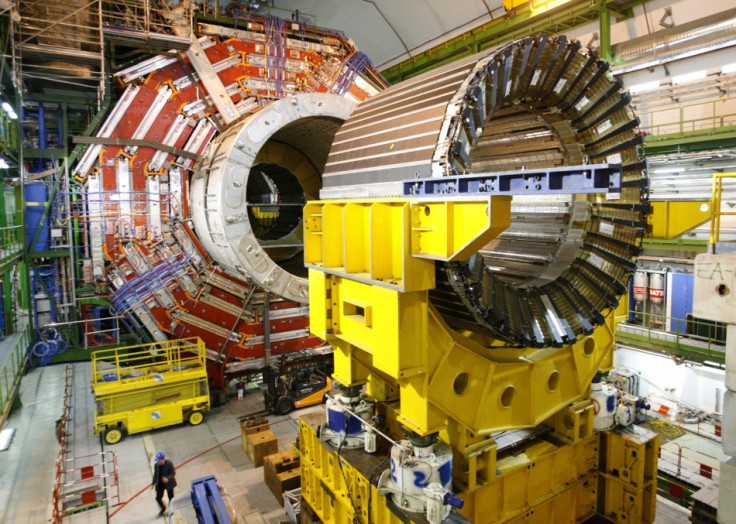Have CERN Large Hadron Collider Scientists Glimpsed the God Particle?

Scientists at the Large Hadron Collider are expected to announce next week they have the seen the "first glimpse" of the so-called 'God particle' - the Higgs boson.
On Tuesday, a public seminar is due to take place at CERN in Switzerland, where the £6 billion particle-accelerating machine has been searching for the "Holy Grail" of physics.
Higgs Boson, also known as the 'God particle', is a theoretical particle described as a 'building block' in standard model used in physics to describe how particles and atoms are made up.
The Higgs Boson is the particle which holds over particles together and is believed to give mass to everything in the universe.
"I think we are going to get the first glimpse. The LHC experiments have already looked high and low for this missing piece," said Professor John Ellis, Theoretical Physicist at CERN, speaking to BBC's Newsnight.
"What we have at the moment is something we call the Standard Model, that describes all fundamental particle physics. You can think of it as being an enormous giant Jigsaw puzzle, but there's a piece missing right in the middle there.
"We have been looking for this for 30 years now, and finally, maybe, hidden under the back of the LHC sofa... we are finally finding it."
The existence of the particle is believed to have taken shape after the Big Bang nearly 14 billion years ago. Two teams at the LHC have collided 350 trillion protons this year in the hope to see the Higgs boson, with only 10 or so producing a reliable candidate for the Higgs boson.
The teams have been working independently of each other and relying on different technology. This is to ensure that they each provide different results when they cross-check their findings with each other.
While the expectation of the announcement of the Higgs boson is high, the two teams cannot officially reveal that they have discovered the particle and more research and data will be needed first, according to Susan Watts, Science Editor, speaking to the BBC.
Last month scientists at the lab said that if the particle exists, it was most likely to have a mass somewhere between 114 and 141GeV (gigaelectronvolts), where one GeV is roughly equivalent to the mass of a proton.
The Higgs boson is named after particle physicist Peter Higgs, who proposed the idea of the particle in 1964.
© Copyright IBTimes 2025. All rights reserved.






















